Read Earlier Parts here:
Part 1
Part 2
Part 3
Question 16: It has become quite clear by now that you don’t look upon God as a support nor are afraid of Him. But common people get inward satisfaction when they worship God. Are you, and ANS, against such worship that gives peace of mind? If yes, do you have in your mind any other means for them to obtain peace of mind?
Answer: To begin with, let me clarify that we are not against worship of God. The simple reason is that the Indian Constitution has given that right to every citizen. The Constitution has given the right to follow your religion, worship your deities, think of your wellbeing in the next life and your spiritual upliftment. Hence, I have no reason to go against it. I want to ask just one question: what can you do if you are restless and seek peace of mind? One, you will consume a sleeping pill; two, drink a peg of liquor; three, go to a temple; four, come to the Committee for Eradication of Superstition. If you come to me, I would say, “Arre, you have headache. First, try to find out the reason for your headache: Do you suffer from cold, do you have blood pressure, has the number of your eye glasses changed or could there be a tumour in your brain? But if you say, “No, there is nothing of the sort. My heath is fine; I am fit as a fiddle.” Then I would ask, “Have you quarrelled with your wife? Is your son misbehaving in some way? Does your boss trouble you a lot?” These would be my ways of finding the cause-and-effect relation. But instead of all these, if you say, “Don’t do anything. I’ll get peace of mind, if I hang a frame of my Guru on the wall, with the caption: Don’t be afraid; I am at your back,” My question would be: How can he back you? Would he pacify your wife, improve your son or talk to your boss? All this discussion simply says that I have to find my own answers. Forget others, Sane Guruji—I know because I am the Editor of Sadhana—said, “I need God because I am human. If a sinful thought enters in my mind, I request Him, Oh, God! Help me keep away sinful thoughts.” It is absolutely right. If you need God for such reasons, it is for some higher-level peace of mind. Why should anyone oppose it? However, our attempts to seek peace of mind in day-to-day situations are for doing wrong things and then speak to God, “Oh God, do you understand what I am saying? Just shell out some peace of mind, if you can. We can adjust later, if you want anything else from me.”
Question 17: In short, it seems, the attitude of your organisation (ANS),with regard to God and religion, is sort of neutral or non-committal in nature. But at some locations, ANS workers staged agitations for ‘Women should be allowed to enter into the temple,’ or ‘At the time of Ganesh festival, in place of idols made of plaster of paris, idols made from ordinary clay should be installed.’ The question arises is this: If you are neutral, why do you pay attention to such issues?
Answer: We are the workers of an organisation actively engaged in agitations so that people are not denied the rights given to them by the Indian Constitution under the name of religion and destructive or harmful activities should not take place on account of religion. When we started the agitation for women to climb on the platform at Shani-shinganapur temple, the situation became so explosive that we were arrested at Ahmednagar. Some people said, “Look at yourselves. You go where women are not allowed to go and thereby shock our Hindu religion.” At that time, women from Bharatiya Janata Party’ s Mahila Manch had declared an agitation against us. The same group of women after eleven years entered in the sanctuary of the Ambabai temple at Kolhapur saying, ‘Why should women not be allowed to enter therein?’ It means they became wiser a little late. Hence the question is: If at public places where all are normally allowed to enter irrespective of caste, creed and gender, who gave you the right to stop women? A woman would decide whether she wants to enter a temple or not. You don’t have a right to say, “You are a woman, you don’t go there.” I said a while ago, one and half crore Ganesh idols made of Plaster-of-Paris are immersed in water every year. This year I discussed with several Commissioners of Municipal Corporations. All of them said, “There is no point constructing alternative tanks because where can we throw the idols already immersed in alternative tanks?” This is the real difficulty! We therefore suggested a simple solution: Make clay idols. It was ratified by the Supreme Court and the Central Pollution Board. When a clay idol is immersed in water, it dissolves easily. If it is immersed in a tub at home, you can use the soil for flower plants in your home garden. If it is immersed in public tanks, it can be used for public gardens. All these simpler ideas are complementary to environment. That is why they are meaningful in the context of the larger process of transformation.
Question 18: You were earlier talking about the rights of women; but many people think that it is the prerogative of theology to prepare rules about performing religious rituals. If so, who has given the right to ANS to intervene in the matter?
Answer: The right has been given by the Indian Constitution! Don’t you know that adopting scientific outlook is considered a duty of citizens according to the Constitution? Shall I tell you what it is? The exact wording is as follows: “It is a duty of every Indian citizen to promote scientific temperament, spirit of enquiry, spirit of reform and humANSm.” The Constitution does not just mention scientific temperament, or urges people to promote it; it further states, “You should critically examine religion with a view to leading to the victory of humANSm.” Today, you are talking about the illegal abortion of female foetus; it is absolutely correct. But I also see around me a daughter is given in marriage as alms, doled out as charity under the name of kanyadaan. Basically, a daughter is not an inanimate object to be given away. She is an independent person with an identity of her own. Look at this strange convention: if a girl’s mother is not alive, the father inserts a betelnut into his dhoti around the waist, and performs the ritual of kanyadaan. But if the father is not alive, it is not done by the mother, it is performed by a brother or a maternal uncle. She has no right to it. Basically, kanyadaan is an inhuman, atrocious ritual; but if it has to followed, it should be the right of the mother. This is legitimate criticism of religion. This is reformation in the true sense. Our constitution has given us the right to follow it and bring it to the notice of the people.
Saint Tukaram said, Teerthi dhonda paani; dev rokada sajjani. It means, ‘Arre, why do you go to a holy place? There is no holy water, there is just water; there is no God, only a stone. If you really want to see God, then meet a gentleman.’ In spite of this, the government sanctions a thousand crore rupees for Sinhastha celebration during the Kumbhmela so that people could dip into the river Godavari to pay off for your bank balance of bad deeds pending for twelve years! In such a situation, what else can we do but to speak and criticise? Basically, we are not against religious rituals, but if it goes beyond the limit of constitutional freedom, we will have to oppose. If a man says, “I bathe three times a day,” at the most, I can say to him, “Look at the availability of water. If you wish to bathe thrice a day, you can do so! It is your religious right. I am not concerned with it!” But if you wish to bring it as a legitimate practice into public life of common people, making it a part of exploitation and differentiation, it becomes an issue for agitation.
Question 19: Now that I know your opposition to the Kumbhmela, I wish to ask you about the Wari to Pandharpur which has been in vogue for some centuries. Now urban population is asking some questions in connection with the Wari. What exactly is the attitude of ANS in this connection? Is the Wari a matter of faith or is it superstition? If it is faith, why do ANS workers not participate in it? And if it is superstition, why don’t they oppose it?
Answer: It’s a good question. Let us start with the definition of faith we stated a little earlier. Faith is the rational power that becomes intensely active. The Wari certainly fulfils the two criteria of intensity and activity. All warkari devotees come to the Wari without any invitation being given to them. Facing all sorts of difficulties, they spend for their expenses, they walk in rain and mud. They look upon inconveniences in the Wari as adventure. They don’t utter any navas—a sort of oath—in the name of their God Pandurang expecting anything in return. And if they are not able to see their God, they take darshan of the top of the temple and return. All this fulfils the first part of ‘intensity and activity.’ The significant word is ‘rational power’ which uplifts the sense of moral values. Hence, it is faith. Friends, do you know, for what purpose was the Wari started initially? When the Wari was undertaken for the first time, inequality was rampant all over Maharashtra in an indiscriminate way. People would recognise your caste and subcaste on the basis of your clothes, your food and external features of your body. Hence the warkari people said, “We will deal with all this by undertaking a Wari by walk to Pandharpur. A man who puts on a dot on his forehead, wears a row of Tulasi beads around his neck, is willing to eat the same food—gopalkala—sharing it collectively with others and believes in Saint Dnyaneshwar and Tukaram is known as warkari. It is stated as follows:
Vishnumay jug/ Vaishnavancha dharma// Bhedaabhed bhrama / amangala //
That is, if you follow the religion of Lord Vishnu, the world is full of essence and spirit of the God, in which inequality and differentiation is looked upon as unholy delusion. That is why everybody touches the feet of everybody else and says ‘Mauli’ (Mother). I hope this is known to all. They dance together in the arid, sandy zone of the river Chandrabhaga. From there begins the true path of faith. But it all has remained circumscribed up to that arid zone. What we should have thought was this: ‘If there is such a large number of people belonging to the warkari sect that goes beyond caste and religion, there should have been inter-caste marriages on a large scale in the warkari group of people.’ But why did it not happen? Okay, set it aside. Today, we arrange inter-caste marriages. They should at least have supported us. Okay, one more point. Why were the untouchables kept out of the village boundary? Why did they not come into the village? Phule was born four hundred years after the Wari started; and Ambedkar was born after five hundred years. Why were they so strongly opposed. Though it’s true that the Wari was a step towards the path of equality, in order turn it into genuine ‘faith,’ the battle for equality will have to fought by the warkari group with greater force and perseverance.
Question 20: You have been fighting this battle for equality with the support of social workers of ANS for nearly twenty-five years. But an outside group somehow thinks—with which all may not agree—that in spite of your efforts, on the one hand, to undertake agitations, forge ahead your movement to expose the truth about buvabaji, the number of babas, buvas and religious places, on the other hand, is increasing and people keep waiting in long queues before them. How to do you explain this inconsistency and what is your stand?
Answer: I told you a while ago that the fourth significant aspect of the ANS movement is to associate itself with the larger movement of social transformation. The first point you need to consider is that while the ANS movement is hardly twenty-five years old, the system supporting buvabaji in general is about five thousand years old! Is it possible for us to remove the nails of superstition fixed in people’s head for so many years—and that too in such adverse circumstances—within a short period of just twenty-five years? No, it’s not possible. Then what do we wish to do? We wish to bring about a transformation both in the individual and the prevailing system. The battle of transformation against the system is called ‘politics.’ Though ANS is directly not in politics today, I dare to state that we are trying to go to the bottom of that politics. In other words, we are in politics in a good sense. What is the basis of politics in democracy? It’s the right to cast a vote by every citizen. Dr. Ambedkar had said, “One man, one vote, one value.” Every individual has a vote because it has a value. The question that has become prominent today is: Do the people vote today on the basis of their individual values in life or on the basis of money, caste, power or hooligANSm? It clearly shows that conscience of many people is mortgaged with something outside them. It means, we have to first transform the individual to transform the system so that democracy succeeds and social transformation and eradication of superstition become successful. Dr. Ambedkar has suggested the way to transform individuals: ‘Let a slave become aware of his slavery so that he can revolt.’
Today however exactly the opposite is taking place: ‘Don’t let the slave become aware of his slavery at all.’ In almost all towns, what is the public utility programme of every Municipal corporator? To spend money to take people to various holy places and temples. In a way, they say, “Oh my people! Don’t you ask us about what happened to the road construction and water supply in your ward! We are taking you on the holy trip to the Ashtvinayak!”
There is a good meaningful sentence: “When thoughts capture a crowd of people, they attain physical power.” Physical power is not in just 440 volts. Today wrong thoughts have captured people’s minds; hence, buvabaji has increased. If rational thinking captures people’s minds, we could win the battle against evil forces, which had spread in the last five thousand years, in about five hundred years.
- Dr. Narendra Dabholkar
(Founder Andhashraddha Nirmulan Samiti, Former Editor of Sadhana Weekly)
Interviewer: Vinod Shirsath (Editor, Sadhana Weekly)
Translated by Vilas Salunke
vilasalunke@gmail.com
Tags: sadhana kartavya dr dabholkar dr narendra dabholkar ans andhashraddha nirmulan samiti andhashraddha nirmulan interview Load More Tags

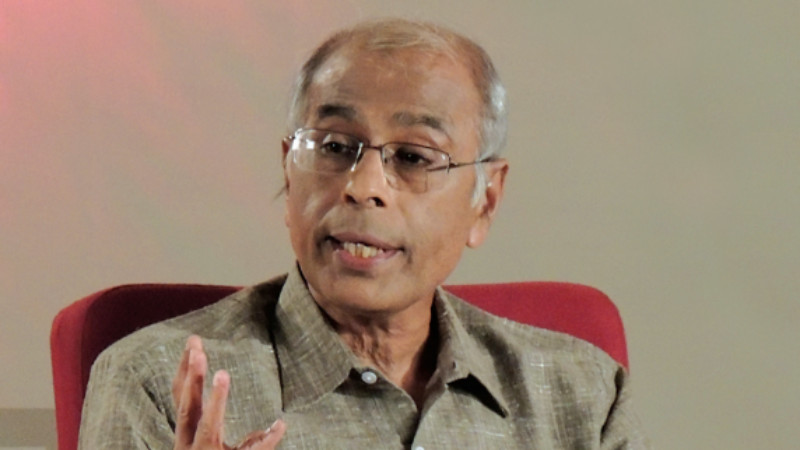
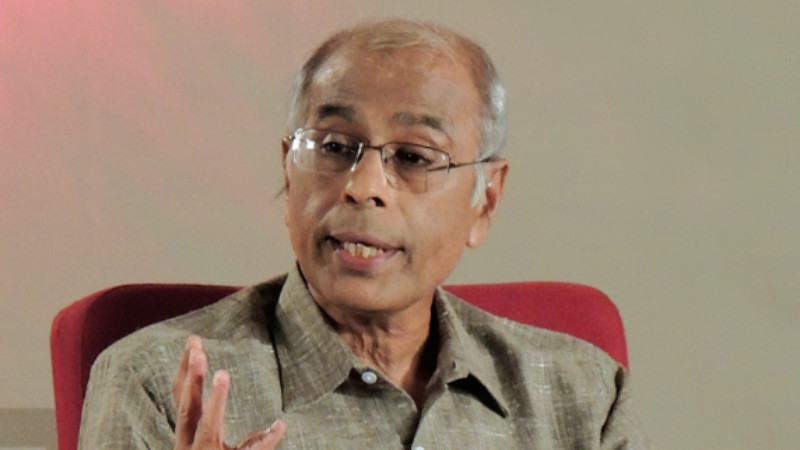
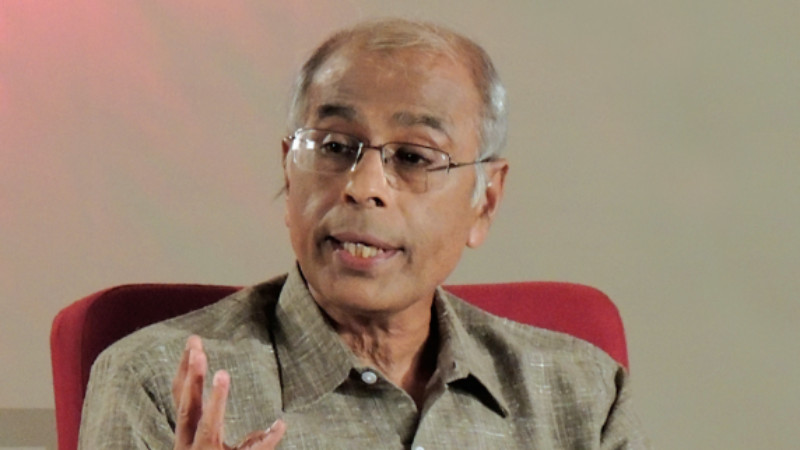
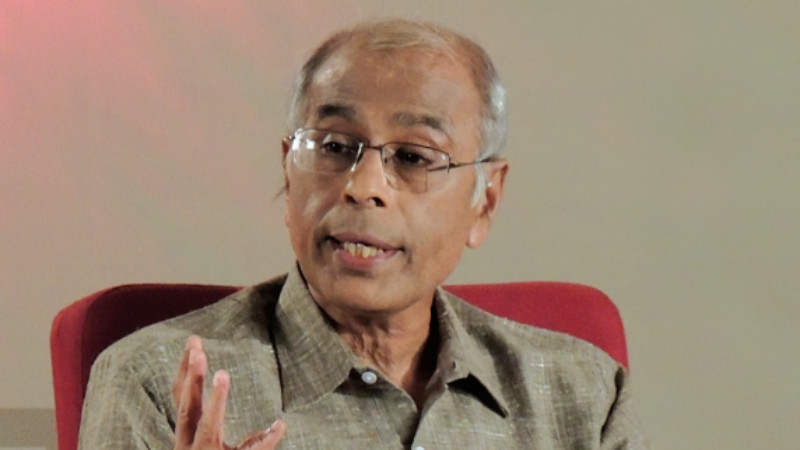
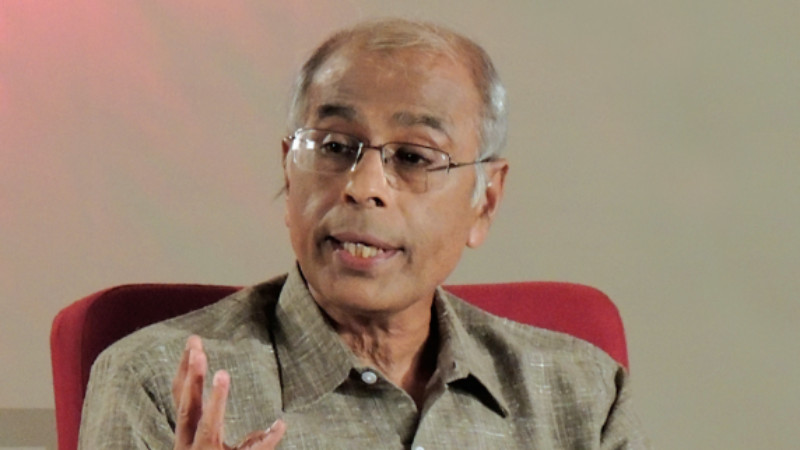
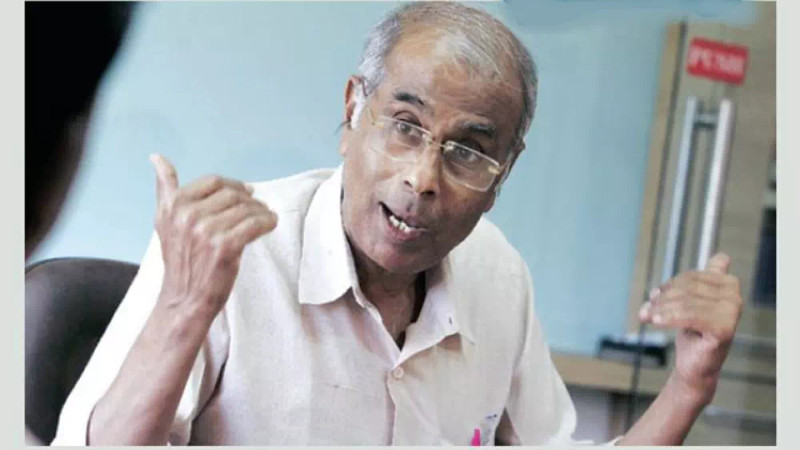


























Add Comment